Jorge Mario Bergoglio was elected the 265th successor of the Apostle Peter, Bishop of Rome and Pope (“Il Papa” — Father of the whole Church) on March 13, 2013.
Bergoglio had been cardinal-archbishop of Buenos Aires, given the red hat by Pope John Paul II in 2001. By all accounts, he fully expected to return to his diocese after being summoned to Rome to vote in the papal conclave after Benedict XVI’s surprising, and abrupt, stepping down from the “Throne of Peter.” But it was not to be.
He took the name Francis, just one of the many “firsts” of his papacy. Even now, in his third year as Pope, he continues to surprise, occasionally to perplex, but often to move, Catholics and non-Catholics alike, with a certain simple frankness that 21st-century people often find hard to grasp.
Archbishop Blase Cupich, appointed in 2014 to succeed the late Cardinal Francis George of Chicago, said of Francis in late 2013, “Pope Francis tells us who he is by pointing to Caravaggio’s St. Matthew: ‘Here, this is me, a sinner on whom the Lord has turned his gaze’…the tax collector sits in stunned disbelief that he is being singled out for discipleship. This is Jorge Bergoglio’s story. The impact of seeing the face of God anew, a face which radiates first and foremost with graced compassion, has changed his life. But, even more, it has left him with an unquenchable thirst ‘to know the Lord more and follow Him more closely.’
“As a result, all other attachments are relative and he is centered in pursuing more and more the One who mercifully loves him, seeking God, discerning God’s activity and will in all things. This is why he is patient, not impulsive in making decisions; why he is attentive ‘to the things that happen, the feeling of the people, especially the poor,’ and why thinking with the Church means being part of ‘the people of God on the journey through history, with joys and sorrows.’”
Blessed Are the Poor in Spirit: for Theirs is the Kingdom of Heaven

The Annunciation, a panel-painted altarpiece by Fra Angelico,
produced for the Convent of San Domenico in Fiesole and now in the Prado in Madrid
How much we have to learn from the wisdom of the poor!… They show us that people’s value is not measured by their possessions or how much money they have in the bank.
Pope Francis, World Youth Day message, 2014
Pope Francis appeared just after his election on the central balcony of St. Peter’s Basilica at the Vatican March 13, 2013. Cardinal Jorge Mario Bergoglio of Argentina had just been elected the 266th Roman Catholic pontiff. Among his first words were these:
“And now let us begin this journey, the Bishop and the people, this journey of the Church of Rome which presides in charity over all the Churches, a journey of brotherhood in love, of mutual trust.
“Let us always pray for one another.
“Let us pray for the whole world that there might be a great sense of brotherhood. “My hope is that this journey of the Church that we begin today, together with the help of my Cardinal Vicar, may be fruitful for the evangelization of this beautiful city.
“And now I would like to give the blessing. But first I want to ask you a favor. Before the Bishop blesses the people, I ask that you would pray to the Lord to bless me — the prayer of the people for their Bishop.
“Let us say this prayer — your prayer for me — in silence.”
Blessed Are Those Who Mourn: for They Will Be Comforted
With this prophetic word, Jesus refers to a condition of life on earth, from which no one is spared… Jesus teaches us to live the pain by accepting the reality of life with trust and hope, bringing the love of God and neighbor, even in suffering: and love transforms everything.
Pope Francis, Message to the Silent Workers of the Cross and the Apostolate of the Suffering, 2014
Vinicio Riva, 53, from Vicenza, Italy, was diagnosed with neurofibromatosis when he was 15. The illness left him with boils all over his body. His undershirt is often soaked with the blood that oozes out of his sores.
The disease is genetic and not contagious. Still, people are usually afraid to come close to the hundreds of boils that cover Riva’s body, fearing that his very presence could make them sick, too.
On November 6, 2013, in St. Peter’s Square at a general audience, the man thought the Pope would speak to his aunt, who made the pilgrimage with him, that he would only get a cursory glance.
“We didn’t think we would be so close to the Pope, but the Swiss Guard kept ushering us forward until we were in a corner in the front row,” the man’s aunt, Lotta, said. “When he came close to us, I thought he would give me his hand. Instead he went straight to Vinicio and embraced him tightly. I thought he wouldn’t give him back to me, he held him so tightly. We didn’t speak. We said nothing, but he looked at me as if he was digging deep inside, a beautiful look I would never have expected.”
Riva was shocked when Pope Francis hugged him without hesitation. It was like nothing he’d ever experienced before.
“He didn’t have any fear of my illness,” he told CNN. “He embraced me without speaking… I quivered. I felt a great warmth.” After the Pope’s hug, Vinicio told Corriere della Sera that his heart was bursting. “I felt like I was in paradise,” he said.
Blessed Are the Meek: for They Will Inherit the Earth
Blessed are the meek in this world which is filled with wars, arguments, hatred. And Jesus says: no war, no hatred.
Pope Francis, Homily, June 2014
Pope Francis traveled to Turkey on November 29, 2014, to meet with Orthodox Ecumenical Patriarch Bartholomew I. The two met at the Patriarchal Church of St. George. As they met, Francis bowed to Bartholomew and asked for his blessing “for me and the Church of Rome.”
It was a remarkable display of papal deference to an Orthodox Patriarch and underscored Francis’ hope to end a schism that dates back to 1054 A.D. when the Catholic and Orthodox Churches split over differences on the primacy of the papacy — there was a time when Patriarchs had to kiss Popes’ feet.
The Patriarch had met with Pope Francis before, at the very beginning of the pontificate, on March 19, 2013, the day of the Mass for the inauguration of the Bishop of Rome — the first time a Patriarch of Constantinople had attended a papal inauguration ceremony.
“It was a lovely and very intense meeting,” Bartholomew said. “I felt moved and I really hope the successor of the Apostle Peter and the successor of the Apostle Andrew, his brother, will decide to do the pilgrimage to Jerusalem.” (As it turned out, the two did travel to Jerusalem in May 2014.)
Bartholomew went on to make a joke about Francis’ decision to stay in the Domus Sanctae Marthae residence: “When we met there, the fact we were both living in the Domus Sanctae Marthae meant we had the chance to have a few brotherly chats and sit down at table together. As you know, the Pope took the suite I usually stay in when I come to the Vatican. At one point he said to me: ‘I stole your room…’ to which I replied: ‘You’re welcome to have it!’”
Blessed Are Those Who Hunger and Thirst for Righteousness: for They Will Be Filled

Sermon on the Mount by Henrik Olrik, part of an altarpiece in the Sankt Matthaeus Kirke, Copenhagen, Denmark
The dignity of the human person and the common good rank higher than the comfort of those who refuse to renounce their privileges. When these values are threatened, a prophetic voice must be raised.
Pope Francis, November 24, 2013
On May 11, 2013, Pope Francis ordained 13 new priests at an ordination Mass in St. Peter’s Basilica.
During his homily, the Pope urged the new priests:
“Never grow tired of being merciful! Please! You have the capacity to forgive as did the Lord, who did not come to condemn, but to forgive! Have mercy, a lot!
“If you come to have concerns about being too much of a ‘forgiver,’ think of that saintly priest… who went before the tabernacle and said, ‘Lord, forgive me if I have forgiven too much. But you have given me the worst example!”
He added: “The gate of mercy is the wounds of the Lord: if you don’t enter into your ministry through the wounds of Christ, you will not be good shepherds.”
As Bishop of Rome, Pope Francis ordained 11 men from the diocesan seminary in Rome and two missionaries from Pakistan and Vietnam.
Blessed Are the Merciful: for They Will Be Shown Mercy
A little mercy makes the world less cold and more just.
Pope Francis, Angelus talk, March 17, 2013
Pope Francis kisses the foot of a prison inmate during the Holy Thursday Mass of the Lord’s Supper at Rome’s Casal del Marmo prison for minors on March 28, 2013. Pope Francis washed the feet of 12 young people of different nationalities and faiths, including at least two Muslims and two women, who are housed at the juvenile detention facility.
During a short homily before the ritual, the Pope urged priests to go out into the world.
“It is not in soul-searching… that we encounter the Lord,” he said. “We need to go out… to the outskirts where there is suffering, bloodshed, blindness that longs for sight and prisoners in thrall to many evil masters.”
Blessed Are the Pure in Heart: for They Will See God
…How much more do we need to protect the purity of what is most precious of all: our heart and our relationships… This ‘human ecology’ will help us to breathe the pure air that comes from beauty, from true love, and from holiness.
Pope Francis, World Youth Day message, 2015
On December 17, 2014, Pope Francis turned 78 years old. In St. Peter’s Square, during his general audience, a representative group of eight homeless people gave the Pope a gift of eight sunflowers to thank him for the concern he has shown for them. The Pope, who has in the past invited homeless people to lunch with him, recently ordered that shower stalls be built near the Vatican so homeless people can wash up.
Blessed Are the Peacemakers: for They Will Be Called Children of God

Christ’s Entrance into Jerusalem, by Pietro Lorenzetti, in the lower part of the Basilica of St. Francis (whose name the Pope took), in Assisi, Italy
I invite even non-believers to desire peace… a desire that widens the heart. Let us all unite, either with prayer or with desire, but everyone, for peace.
Pope Francis, Urbi et Orbi Address, 2013
On May 26, 2014, Pope Francis was in Jerusalem. He was making a pilgrimage to the Holy Land on the 50th anniversary of the meeting in Jerusalem between Pope Paul VI and Patriarch Athenagoras in 1964. He went to the Western Wall, prayed for peace, and addressed the two Chief Rabbis of Israel, saying:
“As you know, from the time I was Archbishop of Buenos Aires, I have counted many Jews among my friends. Together we organized rewarding occasions of encounter and dialogue; with them I also experienced significant moments of sharing on a spiritual level… I am convinced that the progress which has been made in recent decades in the relationship between Jews and Catholics has been a genuine gift of God, one of those great works for which we are called to bless his holy name: ‘Give thanks to the Lord of lords, for his love endures forever; who alone has wrought marvelous works, for his love endures forever’ (Ps 135/136:3-4).
“A gift of God, yes, but one which would not have come about without the efforts of so many courageous and generous people, Jews and Christians alike… We need to do more than simply establish reciprocal and respectful relations on a human level: we are also called, as Christians and Jews, to reflect deeply on the spiritual significance of the bond existing between us. It is a bond whose origins are from on high, one which transcends our own plans and projects, and one which remains intact despite all the difficulties which, sadly, have marked our relationship in the past.
“On the part of Catholics, there is a clear intention to reflect deeply on the significance of the Jewish roots of our own faith. I trust that, with your help, on the part of Jews too, there will be a continued and even growing interest in knowledge of Christianity, also in this holy land to which Christians trace their origins. This is especially to be hoped for among young people.”
Blessed Are Those Who Are Persecuted for Righteousness’ Sake: for Theirs Is the Kingdom of Heaven
…What must continue on the part of all is the spiritual journey of prayer, intense prayer; the concrete participation and tangible help in the defense and protection of our brothers and sisters, who are persecuted, exiled, killed, beheaded, for the only reason of being a Christian.
Pope Francis, Easter Monday Regina Coeli address, 2015
Pope Francis talks with Meriam Ibrahim of Sudan, while her husband and two children sit beside her, during a private meeting at the Vatican on July 24, 2014. The Sudanese woman, who was spared a death sentence for converting from Islam to Christianity and then was barred from leaving Sudan, flew into Rome in an Italian government plane.
Ibrahim was heavily pregnant when she was jailed in February 2014 after a member of the Muslim side of her family told authorities she had recently converted from Islam to marry her Christian husband. That crime is punishable by death under Sudan’s strict Islamic law. She argued that her Muslim father had abandoned the family when she was six and that she was raised by her Orthodox Christian mother and then married Daniel Wani, who lives in Manchester, New Hampshire.
Ibrahim was sentenced to death and 100 lashes after she refused to renounce Christianity when given the opportunity in court. She was forced to take her 20-month-old son into her cell and gave birth to her second child, Maya, while her legs were in shackles.
She was sentenced to death under the country’s strict Islamic laws, known as Shariah, which were imposed in the 1980s. These have been used sporadically, however, and no one has been put to death for apostasy in the country since 1985.
Key Moments of Francis’ Papacy
2013
March – After the surprising resignation of Benedict XVI, the papal conclave elects Jorge Mario Bergoglio, the first Jesuit and first Latin American Pope in history, to succeed him; he chooses the humble name “Francis” after Il Poverello, “The Poor One” of Assisi.
Among his first deeds as Pope, he pays his hotel bill and moves into the more modest Domus Santa Marta guest house, rather than the traditional papal apartments — a sign of things to come.
April – Francis forms the 9-member “Council of Cardinals” — later renamed the “Council of Cardinal Advisors” — to advise him on matters relating to the reform of the Roman Curia.
June – The encyclical Lumen fidei (“The Light of Faith”) is published; it was begun by Pope Emeritus Benedict and finished by Francis.
July – Francis makes the now-famous off-the-cuff remark about homosexuals who are sincerely seeking God: “ Who am I to judge?” He attends World Youth Day in Rio de Janeiro, Brazil, and speaks to a record-breaking crowd of some 3 million young people.
November – His first apostolic exhortation, Evangelii Gaudium (“The Joy of the Gospel”) is released.
Francis is famously photographed embracing a local Roman man who is severely disfigured by tumors — emblematic of the Pope’s compassion.
December – “Pope Francis” is declared the most talked-about subject worldwide on the internet; Time magazine puts him on the cover of its annual “Person of the Year” issue.
2014
January – Francis announces his selection of 19 new cardinals, an unprecedented number of them from what he terms “the peripheries” of the world.
February – Francis convenes a consistory and confers red hats on new cardinals, celebrating Mass with them. Rolling Stone magazine puts Francis on its cover.
March – Francis meets with families of innocent victims of Mafia crime, and utters a warning to Mafioso: “Convert. You still have time to not end up in Hell.” During a Lenten penitential celebration at St. Peter’s, Francis sets a new precedent by going to confession with the public.
April – Francis canonizes two widely-beloved saints: Pope John XXIII and Pope John Paul II (above).
May – Francis visits Israel, Jordan and Palestine. He meets with King Abdullah of Jordan; the president of Israel, Shimon Peres; Palestinian President Mahmoud Abbas; Orthodox Ecumenical Patriarch Bartholomew of Constantinople; and the chief Jewish rabbis and the Muslim Grand Mufti of Jerusalem. His message is primarily one of peace.
June – Francis hosts Israeli President Peres and Palestinian President Abbas at the Vatican, where the three, together with Patriarch Bartholomew, pray for peace in the Middle East.
July – A Sudanese woman who was imprisoned and risked execution for refusing to renounce her Christian faith, Meriam Ibrahim, meets Pope Francis at the Vatican after international pressure effected her release. Francis thanks her for her steadfast witness to Christ.
August – Francis visits South Korea and attends the sixth annual Asian Youth Day.
September – Francis visits Albania, birthplace of Mother Teresa of Calcutta, and praises the country for its “model cooperation” between the Muslim, Orthodox and Catholic communities there.
October – The Extraordinary Synod on the Family is convened by Pope Francis, in preparation for the following year’s Ordinary Synod. A firestorm of controversy is ignited by the opinions of some of the participants.
November – Francis visits Turkey, the first predominantly Muslim destination of his pontificate, urging “dialog.” He goes to Strasbourg, France, to address the European Union; he calls Europe, with its declining population and fading Christian culture, “haggard” and a “grandmother.”
December – At his annual Christmas address to the Roman Curia, he delivers a scathing critique listing 15 “diseases” Vatican officials are prone to.
2015
January – Hundreds of thousands turn out to see Francis when he visits Sri Lanka and urges reconciliation after its decades-long civil war. In the Philippines, he says an open-air Mass for six million. A book on Francis’ views, including a personal interview, on the global economic system and poverty, Pope Francis: This Economy Kills, is released, spurring worldwide comment.
February – Francis issues a motu proprio establishing the new Secretariat of the Economy. Cardinal George Pell is named as its first Prefect.
March – The Jubilee Year of Mercy is announced, to commence in December.
April – Francis institutes a commission to study restructuring of the communications organs of the Vatican.
May – Francis canonizes four 19th century women, including two Palestinians, whose canonization is attended by Palestinian President Abbas.
June – Francis urges peace on a trip to Bosnia-Herzegovina, and calls capital Sarajevo “the Jerusalem of Europe” for its cultural and ethnic mix.
July – Francis visits Ecuador, Bolivia and Paraguay, preaching unity and respect for the environment, and criticizing materialistic cultural “colonialism.”

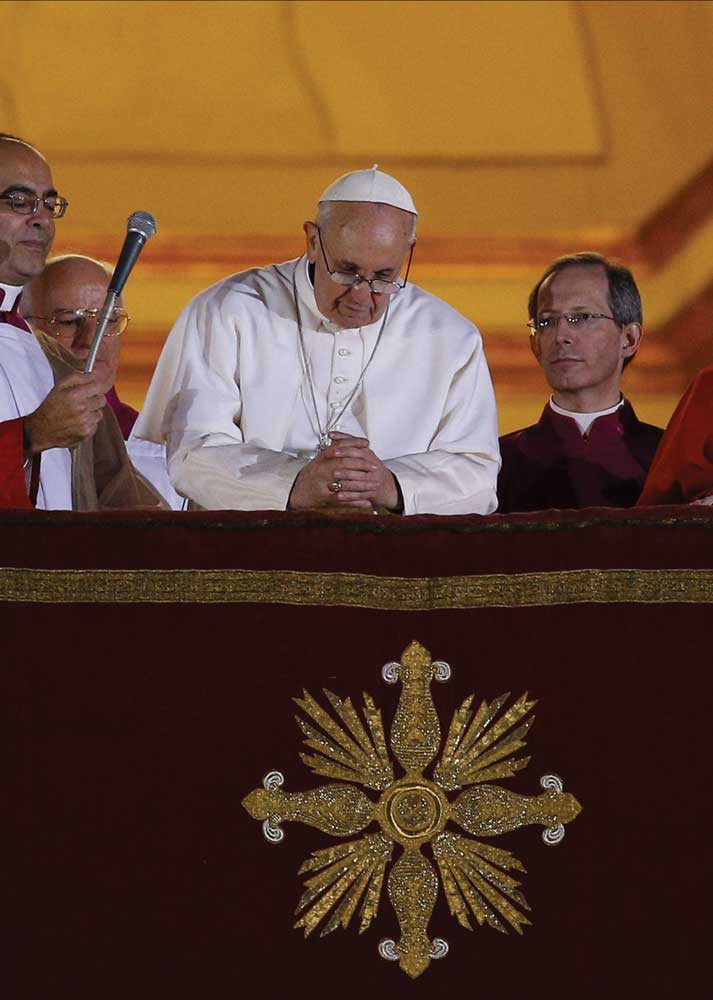

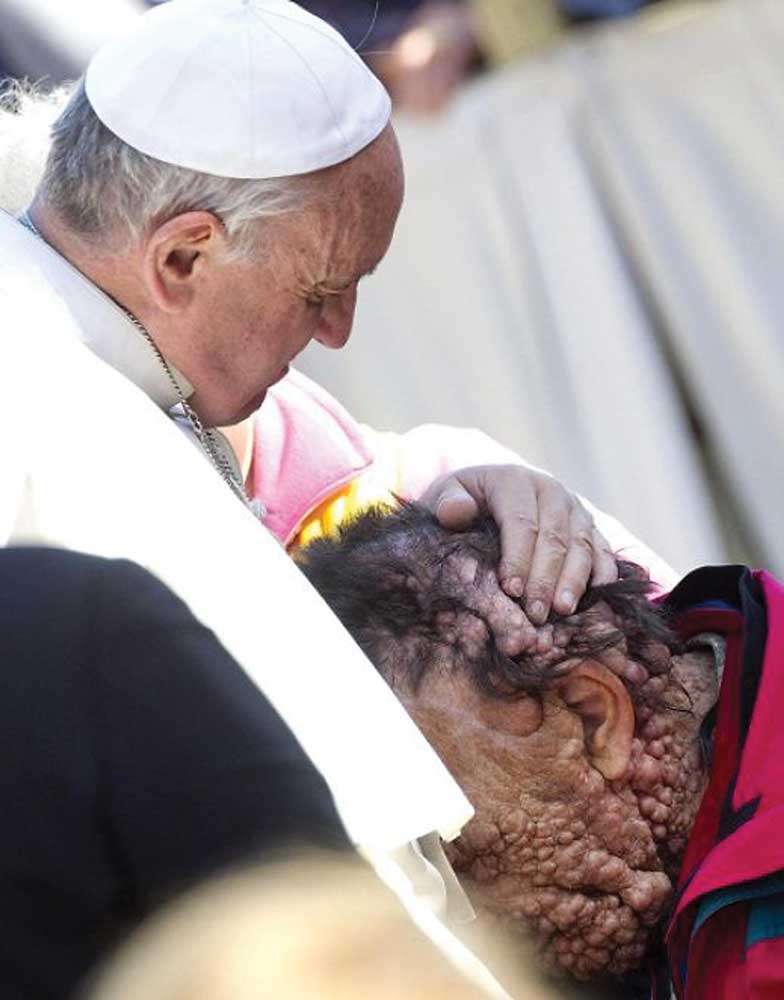

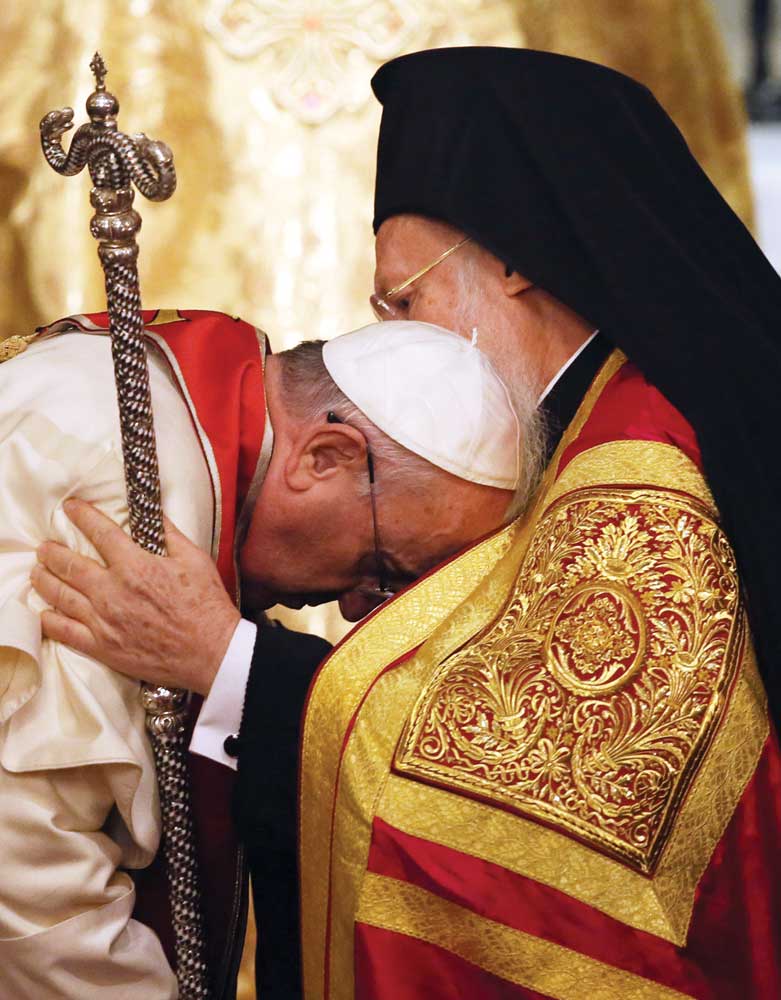
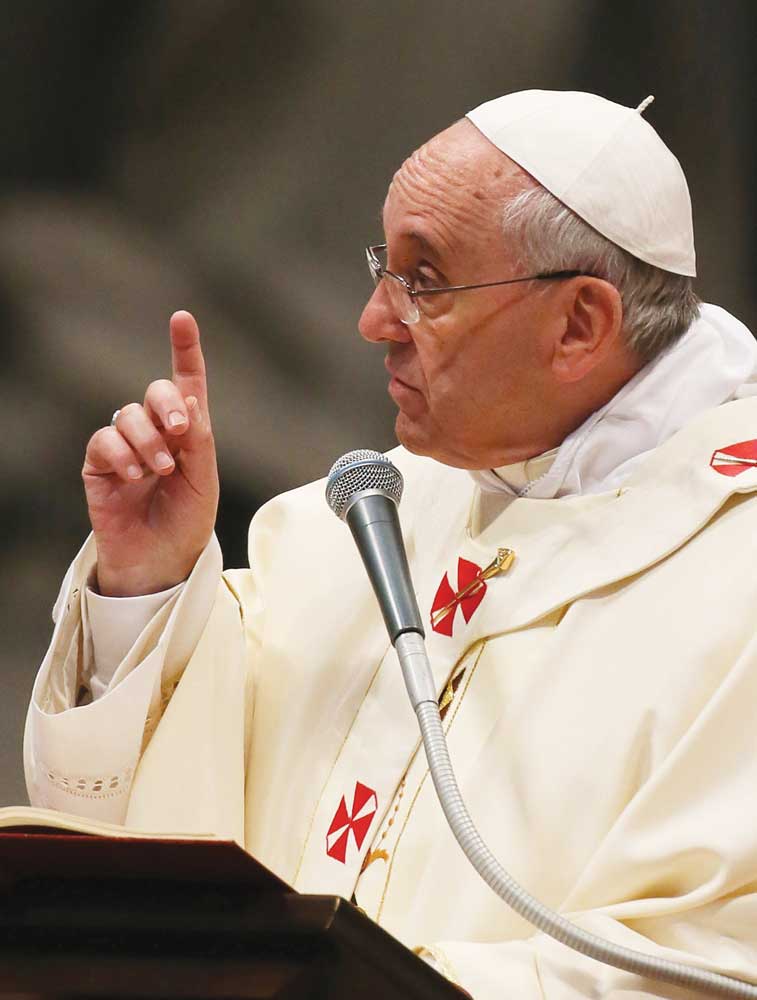

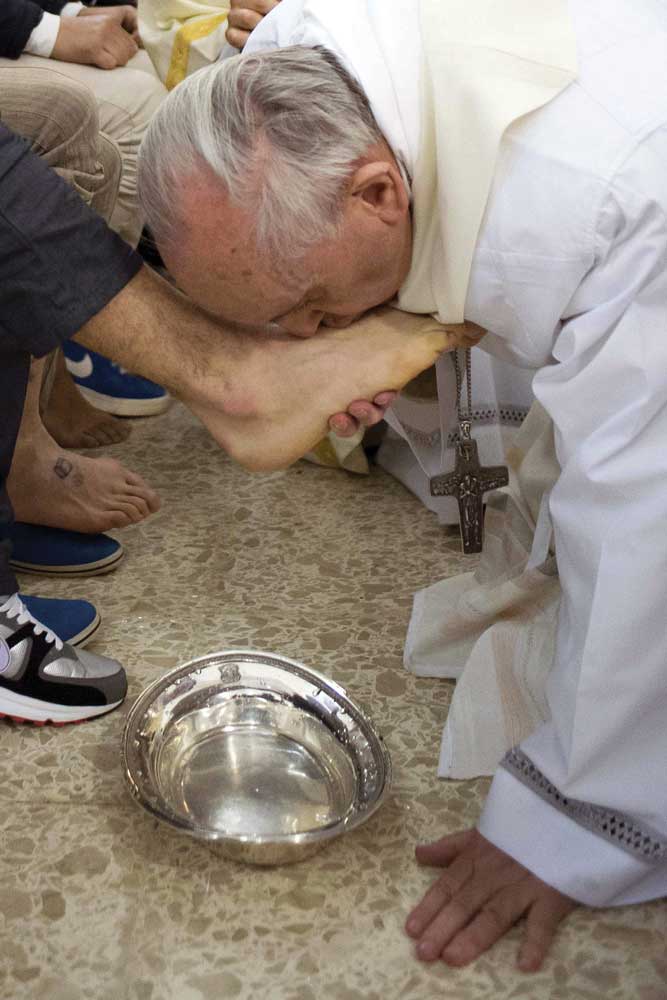

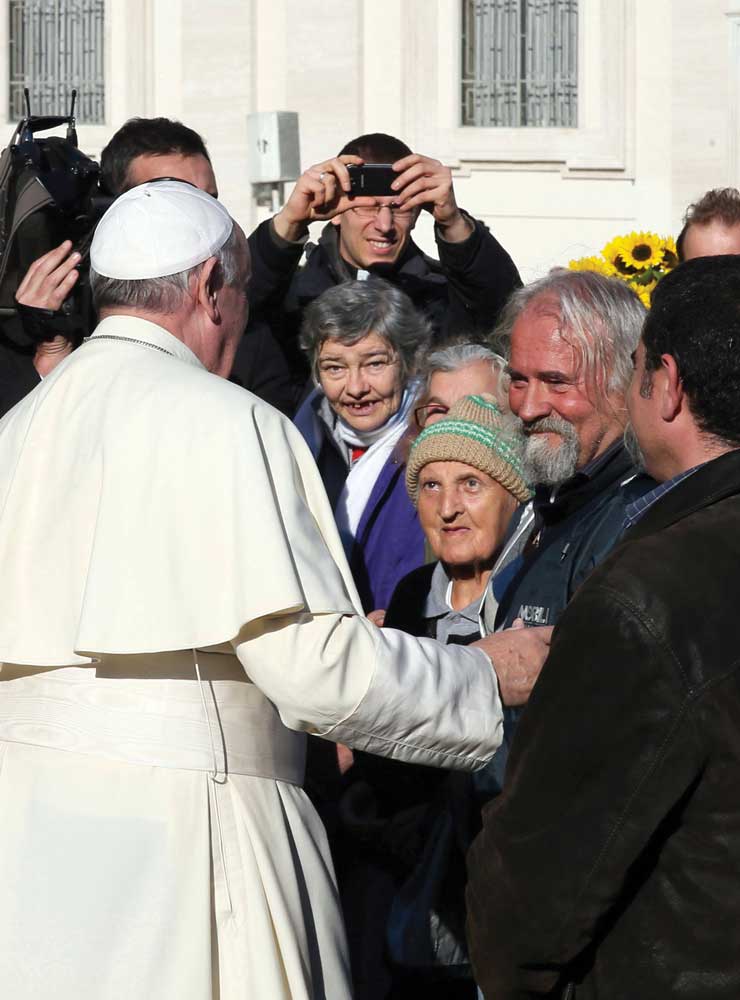
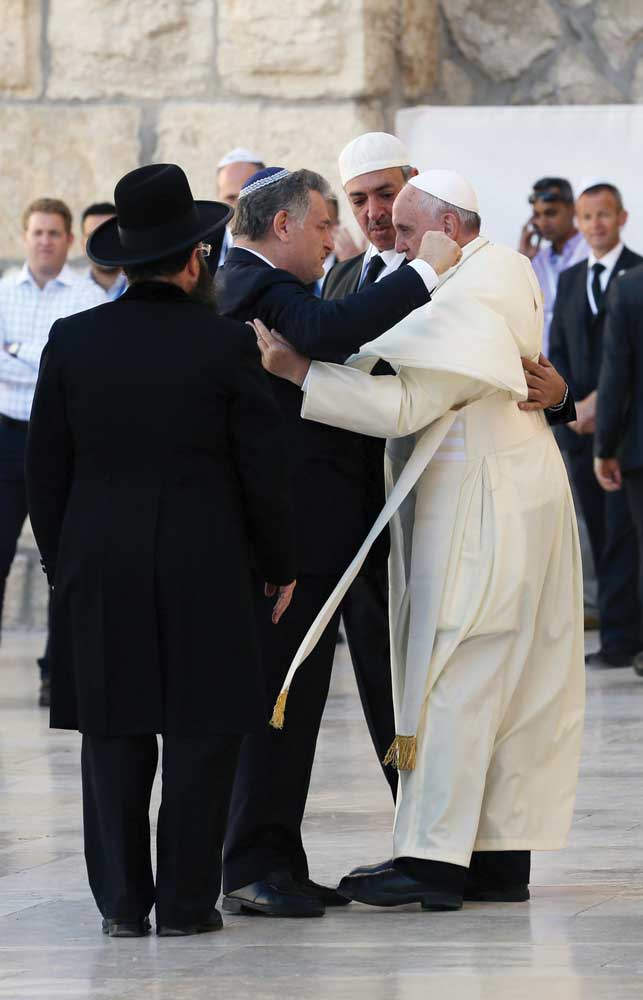
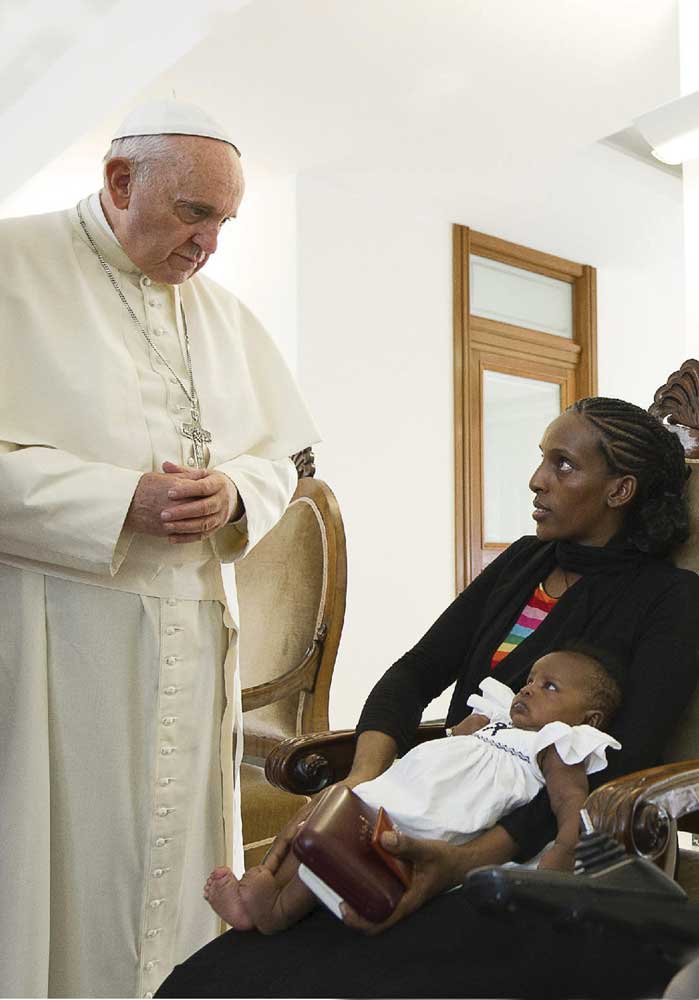

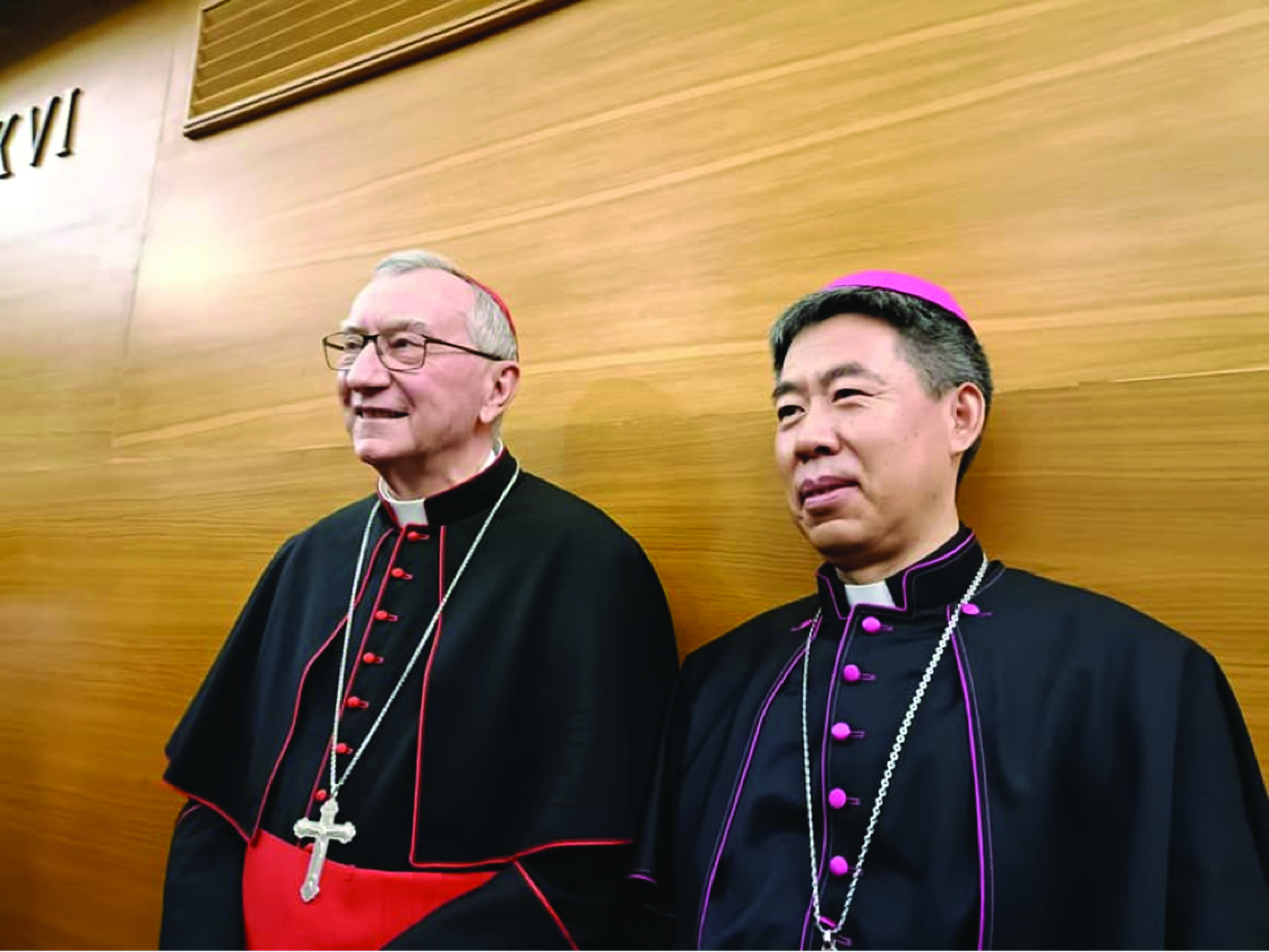
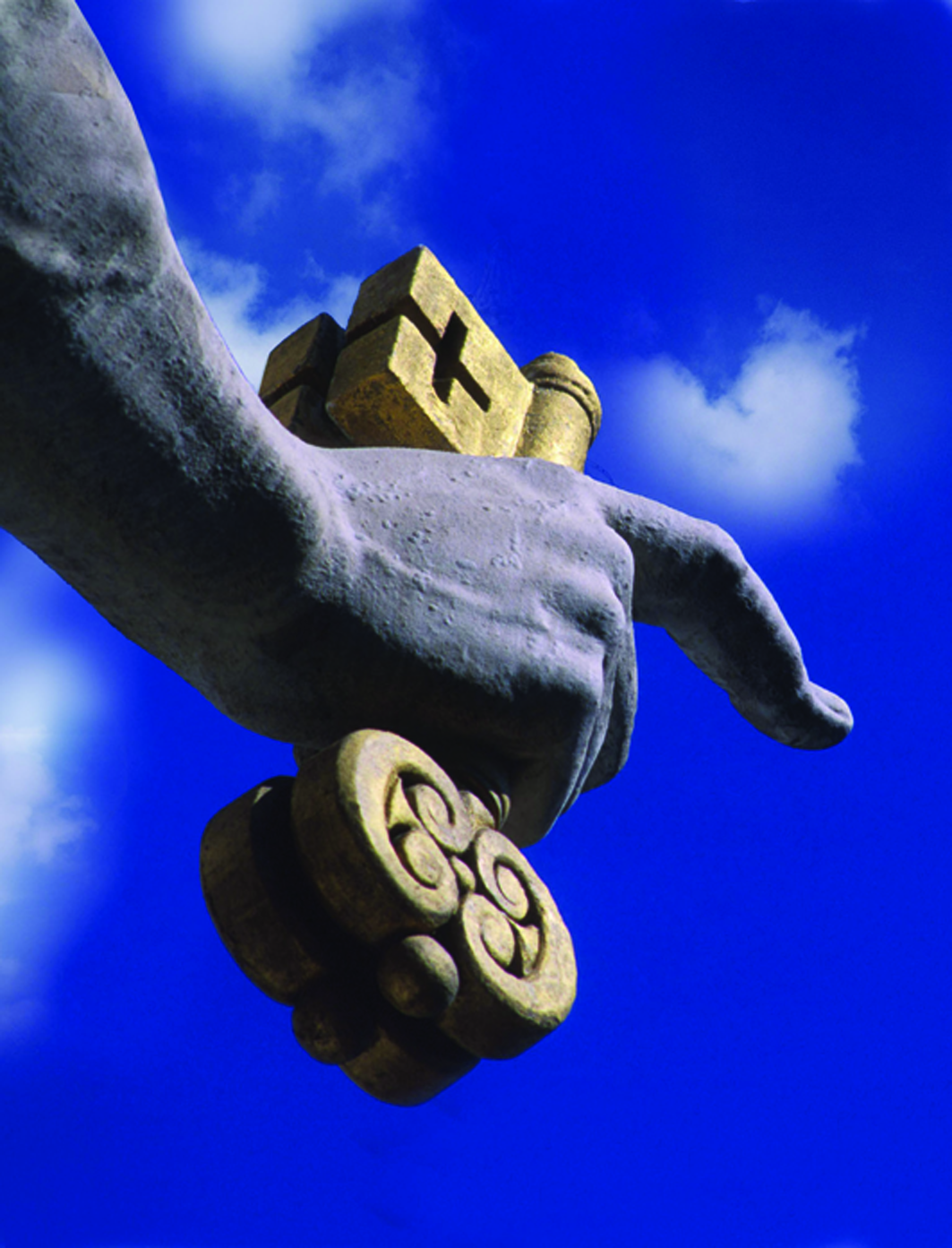

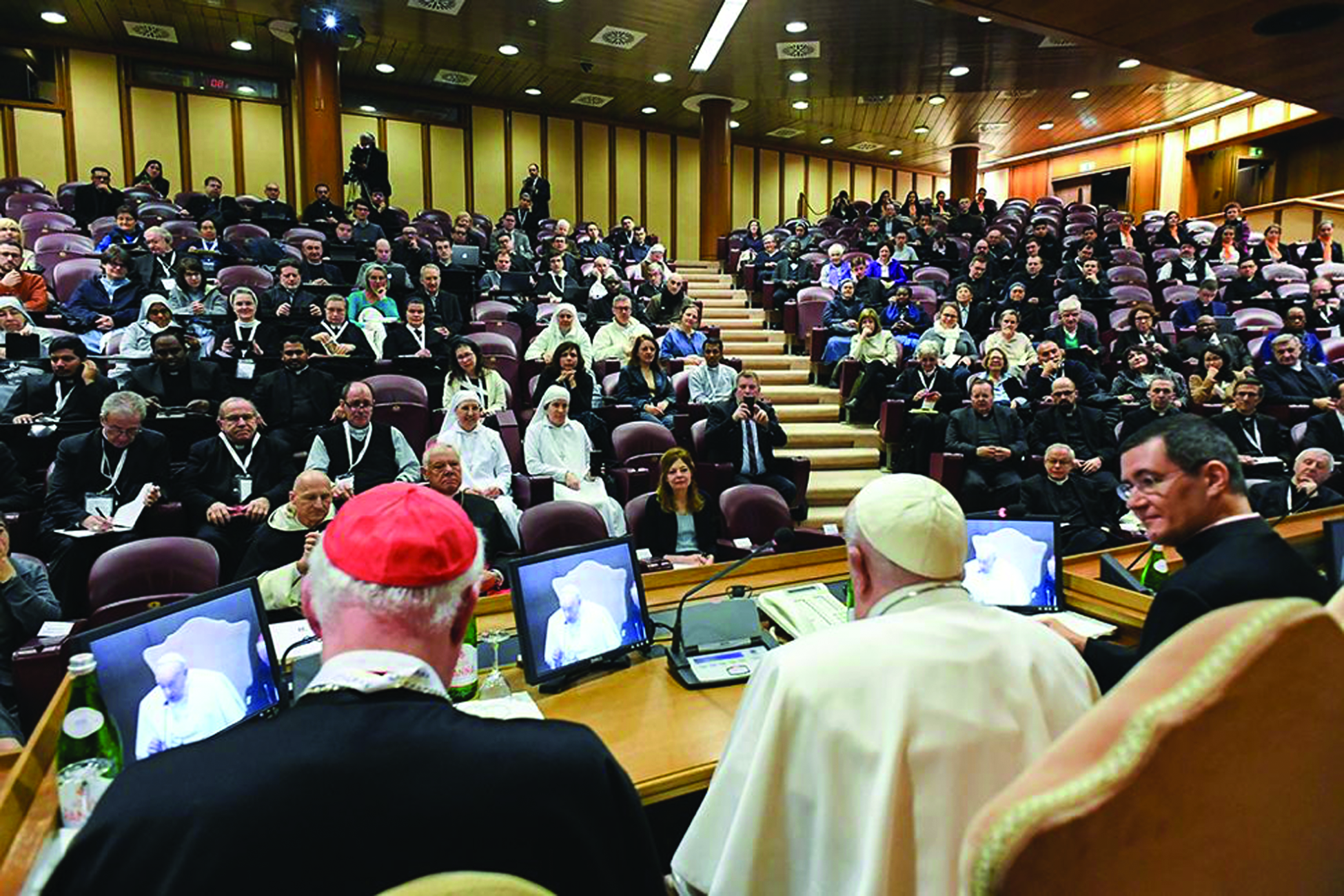
Facebook Comments